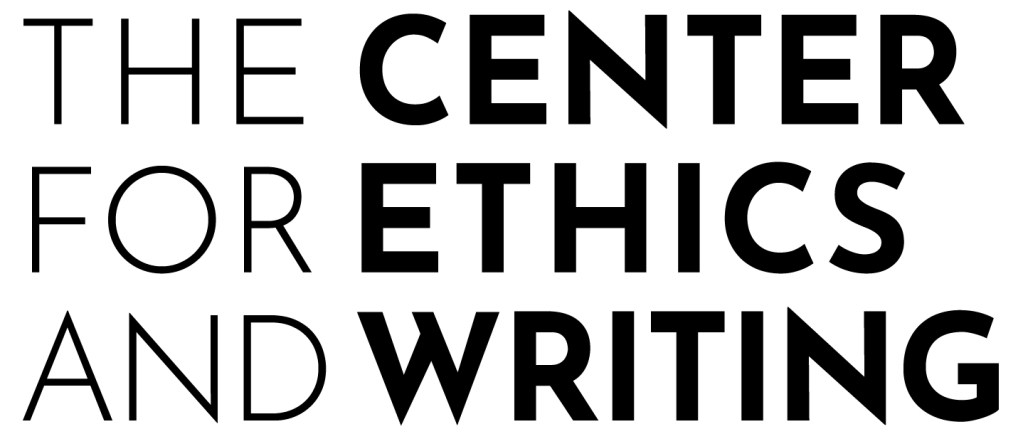Cultivating rigorous aesthetic practices with ethical representation.
An initiative of Bard College’s Written Arts Program

What is the Center for Ethics and Writing?
The Center for Ethics and Writing, an initiative of Bard College’s Written Arts Program, reimagines the study of literature and writing as both an academic and social practice, one that asks students to translate the skills they develop in the classroom as critical readers and writers to some of the most pressing and divisive social issues of the moment.
Course Highlights
Fall 2024
Imagination Under Seige
This is a course centered on imagination. What is imagination? How does it differ from but remain connected to memory, desire, creativity, and political agency? And how has it been conceptualized, theorized, and instrumentalized across the centuries? What happens to our imagination and capacity for creativity during socio-political crises? Do circumstances like wars, authoritarianism, exile or different forms of confinement ignite or stifle our creative drive? Can we work when we are living in fear and under threat? What does violence —political, environmental, racial, and gender-based— do to our bodies and minds and how do we document that and write about it? These are some of the questions that will be addressed during this workshop. We will be thinking about how imagination can be used as a powerful political instrument –one that is mindful of the intersection of our aesthetic and ethical concerns– and how it can also be shaped to be an end in itself. We will be looking at work emerging from several disciplines, such as soundscapes, architecture, dance, as well as forms of protest and collective organizing.
The Ekphrastic Poem
The ekphrastic poem—one provoked by or in response a work of art—can hold rich interior and surface tensions, deriving energy from the friction between two modes of experience: the visual and the verbal. As such, it can be a vibrant site of experimentation and play, liminality and subversion. What are the possibilities of ekphrasis outside of mirroring an artwork? How can the ekphrastic reorient us to a piece of art by exceeding its frame to probe its material, historical, and social contexts? How can an ekphrastic poem break down the distance between spectator and artwork and invite us to question our manner of looking? As a class, we’ll discuss an invigorating range of ekphrastic poems that emerge from different approaches to artwork. Readings will include selections from the work of Robin Coste Lewis, Jeffrey Yang, Anne Carson, Eduardo C. Corral, W.H. Auden, Forrest Gander, Albert Goldbarth, Cole Swensen, Dean Rader, Ama Codjoe, Rainer Maria Rilke, Jorie Graham, Ann Lauterbach, and Brian Teare. Students will write into their own (repeated) encounters with self-selected artworks and art forms and visit local museums and site-specific artworks.
Documentary Fiction
How do fiction writers interact with archives? This course understands the archive not as a static repository of the past, but as a space for imaginative speculation. We will be thinking both about fictions created by the historical archives that support official narratives, and about ways of using fiction, non-fiction and poetry to interact with archives creatively. If some archives are often historically bound to power, perhaps fiction can act as a destabilizing force, throwing official narratives off balance and offering alternatives to how we can imagine possible futures. In this course we will be examining works –literary, acoustic, visual, and others– that have worked with archives and offer insight into the relationship between document and fiction. Among others, we will be looking at work by Svetlana Alexievich, Layli Long Soldier, Zoe Leonard, Alice Oswald, Arlette Farge, Ecologies of Migrant Care, among others. We will also be working directly with a selection of archives –National Archives, newspaper and magazine archives, museum archives, oral history archives, manuscript versions, among others– thinking (and practicing!) ways to intervene, question and interact with them.
Dinaw Mengestu Spoke with WAMC’s The Best of Our Knowledge about the Center for Ethics and Writing

News & Events
-

A Reading with Stephanie Wambugu
On Monday, February 23rd, at 6pm in the László Z. Bitó ’60 Auditorium, Reem-Kayden Center, writer and Bard alum Stephanie Wambugu ’20 will read from her work. This reading is free and open to the public. Stephanie Wambugu lives in New York City. She was born in Mombasa, Kenya and grew up in New England. Her work appears… Read more
-

Center for Ethics and Writing Journal Launch
On Monday, February 23rd at 5:10pm in the Reem-Kayden Center Laszlo Z. Bito ’60 Auditorium, come celebrate the first issue of the Center for Ethics and Writing Journal! The CEW Journal is a collection of student writing from Center-supported writing workshops across Bard, including those taught at Bard College’s Annandale campus and the Bard Microcolleges in… Read more
-

A Reading with DM Aderibigbe
On Monday, February 9, at 6pm in the László Z. Bitó ’60 Auditorium, Reem-Kayden Center, poet and Center for Ethics and Writing Fellow DM Aderibigbe will read from his work. This reading is free and open to the public. D.M. Aderibigbe is from Lagos, Nigeria. He’s the author of 82nd Division (Akashic Books, 2025), winner… Read more

